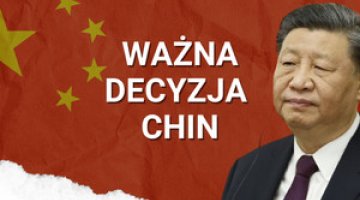Germany’s idea of a European army
Last week the German defence minister, Ursula von der Leyen, took Jean-Claude Juncker up on his suggestion of 8 March 2015 that a ‘European army’ should be formed. Germany intends to use Juncker’s proposals to initiate a debate on establishing closer military co-operation within the EU. Using the rhetoric of a ‘European army’, Germany will want to promote its own ideas for the development of political, military and industrial co-operation in Europe. The German concepts have little in common with a European army when understood as a supranational structure modelled on national armed forces. Germany will attempt to implement the Framework Nations Concept in the EU which it has already been put forward in NATO. As part of this concept, Germany wants to be the country that will integrate the armed forces of smaller partners from the Benelux, the Nordic-Baltic region and the Visegrad Group. The basic problem with this concept is that it places the emphasis on the integration and creation of military structures rather than on using them. This is related to Germany’s sceptical approach to armed forces being used as a foreign policy instrument. Furthermore, if the German Framework Nations Concept is implemented to the full extent, the smaller partners from the German ‘cluster’ may in the long run become militarily, and thus politically, dependent on Germany’s political and military decisions. Germany wants to build a regionally integrated structure, but it is unwilling to relinquish some of its sovereignty in the field of security and defence.
The concept of a ‘European army’ re-emerges
The President of the European Commission, Jean-Claude Juncker, on 8 March gave Die Welt an interview on 8 March and mentioned a “common European army (…) that would help create a common foreign and security policy, and show Europe’s responsibility worldwide”. This has sparked discussions in the EU. Juncker was not explicit in what he said and reiterated opinions he has previously expressed. However, in the context of the conflict in Ukraine, the European media has given this a great deal of publicity. The proposals to create a ‘European army’ met with a sceptical reaction from German experts. However, key German politicians (the chancellor via the government’s spokesperson, the minister of foreign affairs and the minister of defence) responded positively to them. The pro-European rhetoric in security policy fits in with the German political discourse, where it is appropriate to express positive opinions on European integration in this field for historical and domestic policy reasons. However, the present German defence minister, Ursula von der Leyen (CDU), moved one step further, and announced at the Brussels Forum conference on 20 March that it was Germany’s long-term goal to build a ‘European army’. The fact that von der Leyen has focused on this topic may be an attempt to improve her approval ratings and to divert attention away from the problems the Bundeswehr have been experiencing recently and which have been regularly reported on in the press. The minister, who has aspirations to become chancellor, would thus have her flagship project that would be supported by public opinion in Germany (ideas to create a ‘European army’ are more popular than reinforcing the eastern flank of NATO). Germany is thus likely to put forward initiatives in this area before the European Council’s summit in June, where security and defence issues will be discussed.
What does Germany want?
However, the German ideas have little in common with a European army understood as a supranational structure modelled on national armies, having the European Commission or the Council of the European Union as the body deciding on when it would be used and possibly with the European Parliament as a co-deciding body. Therefore, at present, this is not a project aimed at creating structures competitive to NATO. Using the ideas of building a ‘European army’, Germany wants to promote its ideas for the development of political, military and industrial co-operation in Europe within the European Union’s institutional framework. Its ideas are based on the Framework Nations Concept, which Germany put forward in 2012 and which was formally accepted by NATO at the Newport summit in September 2014, albeit with little enthusiasm. The concept provides for the development of military capabilities in Europe in multinational clusters. Smaller nations as part of the clusters would develop their capabilities in co-operation and as part of their integration with a large framework nation, de facto creating durable interdependencies within one cluster. In this concept, Germany views itself as one of the framework nations, with the Bundeswehr at the core of the regionally integrated military structures.
The Framework Nations Concept is a consequence of the Bundeswehr reform implemented in 2011 based on the Breite vor Tiefe principle. According to this principle, the Bundeswehr has been developing its capabilities to perform the functions of a framework nation through investments in key areas such as: reconnaissance, command, strategic transport, and logistics. However, the Bundeswehr has undergone personnel and equipment cuts and is relatively underfunded. Therefore its operational capabilities in many areas must be reinforced and supplemented by its (smaller) allies. The implementation of the Framework Nations Concept is also expected to maintain the existing military infrastructure in Germany through its intensified use by smaller partners (e.g. training centres). This project is also essential from the point of view of the transformation of the European arms industry - it is aimed at reinforcing and consolidating the arms industry around the framework nation, in this case Germany. Furthermore, Germany is aware of the fact that integration in the area of security and defence with the simultaneous participation of France, the United Kingdom and Germany is unlikely due to the differences in strategic cultures and in the use of the armed forces as a security and defence policy instrument. Germany therefore prefers integration projects with small and medium-sized neighbouring nations, and has been promoting itself as the framework nation for the Benelux countries, the Nordic and Baltic region and the Visegrad Group, where it is the stronger partner and can set the tone for co-operation.
German proposals for its partners and allies
While promoting the discussion on the long-term creation of a ‘European army’, Germany has also been making efforts to introduce a closer coordination of military co-operation and in fact to implement the Framework Nations Concept in the EU, since NATO has only partly put this concept into practice. Thus, within the EU, Germany will promote, for example, permanent structured cooperation or co-operation within the European Defence Agency in order to push through its ideas. At present, the implementation of the idea of Germany as a framework nation is based on various uncoordinated forms of military co-operation, with different levels of advancement, and with various partners as part of bilateral and multilateral agreements.
The German Ministry of Defence has put forward German-Dutch co-operation as a model example of bilateral military co-operation in the spirit of the Framework Nations Concept. Co-operation in the areas of training and exercises (as part of the 1. German/Netherlands Corps), covering the logistics of the similar equipment used by both armies (Boxer, Fennek PzH 2000 and NH90) and participation in foreign operations (in Kosovo and Afghanistan), led to the 11th Dutch Airmobile Brigade being embedded in the structure of the Bundeswehr’s Rapid Reaction Division (DSK). Although this co-operation does not rule out the use of the Dutch land forces units outside German structures, it will still make Dutch Army more dependent on Germany’s political and military decisions in the long term. The co-operation of Polish and German land forces is of a different nature. This is based on the mutuality principle and aimed above all at improving interoperability, covering, i.a. the exchange of officers, joint training, mutual subordination of combat battalions to a Polish/German brigade.
Minister von der Leyen presented the perspective of multilateral military co-operation in the spirit of the Framework Nations Concept at the conference in Brussels on 20 March. She reiterated the proposal to form a multinational helicopter unit in Germany consisting of 22 NH90 helicopters (most likely tasked with Forward Air MedEvac in compliance with the previous proposal from the Inspector General of the Bundeswehr). This proposal has been developed as a consequence of the contract between the German Ministry of Defence and Airbus Helicopters being renegotiated, as a result of which the number of combat and transport helicopters ordered by Germany has been reduced. The new contract maintained the option of supplying 22 NH90 helicopters for a possible multinational helicopter unit stationed in Germany that would be used and co-financed by the partner nations. Its operating rules are still unclear – it has been suggested that the partners could participate in the purchase and maintenance costs of the helicopters, and delegate pilots and technical and medical personnel. Thus the production of NH90 helicopters in Germany would be maintained and the multinational unit would use German military infrastructure.
Along with some other allies within NATO Germany (as a framework nation), has undertaken to enhance co-operation in certain areas covering smaller-scale projects such as: logistics, command and missile defence.
European integration in security and defence – the problem with Germany
The main problem with Germany’s ideas for enhancing military co-operation in Europe is that they are focused on the integration and creation of military structures rather than on using them operationally. It seems that the overriding intention of the Framework Nations Concept is for Germany to maintain its own military structures and arms industry, and to reinforce its political position within the EU and NATO. It is still an open question as to when the structures integrated in this way – with the Bundeswehr as the core – would be used: in what kind of crises and conflicts, in which regions and to what extent. The most recent crises and conflicts in Europe’s neighbourhood have made it clear that the EU not only lacks a uniform policy but is even deeply divided over the use of military force. Germany has characteristically been attached to the primacy of diplomacy and has adopted a very sceptical and cautious stance on the use of armed forces as a foreign and security policy instrument. These issues have not been taken into account in the German discussions concerning the Framework Nations Concept and the ‘European army’.
The gradual implementation of the Framework Nations Concept in the medium and long term will result in the smaller partners from the German ‘cluster’ becoming dependent militarily and thus politically on Germany’s political and military decisions. It is unlikely that Germany, forming regionally integrated structures, would be ready to relinquish some of its sovereignty and allow its partners to co-decide on sending German soldiers on foreign missions within such a multilaterally organised cluster. The Bundeswehr is and will remain a parliamentary army – the German government’s motion concerning the participation of German soldiers in crisis management or collective defence operations must be approved by a parliamentary majority in the Bundestag. This concerns not only sending German units to foreign operations but also the participation of German soldiers in multinational units and multinational command structures. Germany’s maintaining full sovereignty in this area will be a problem for the partners and allies integrating as part of the German cluster, because their policy will be dependent on the decision of the framework nation, Germany.
The German ideas for enhancing military co-operation in Europe put forward under the ‘European army’ slogan will not provide a remedy for the basic problem in the area of European defence and security, that being the underfunding of numerous national armed forces. This concerns both Germany and many other, smaller and larger, EU member states.





